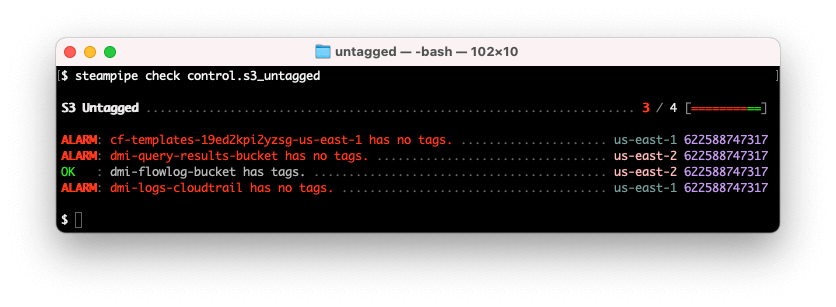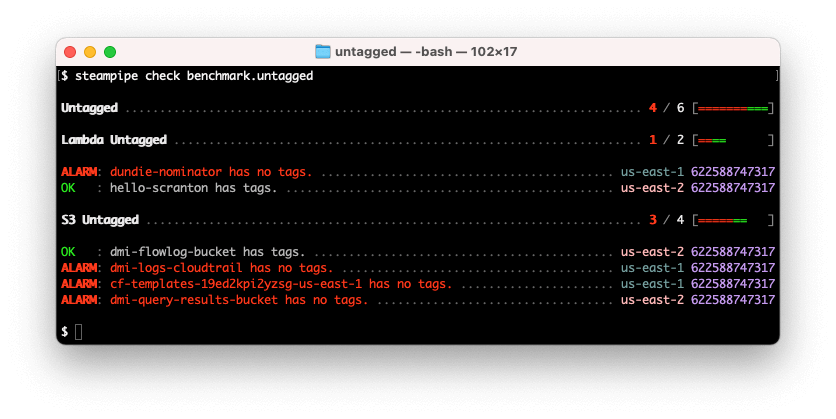Custom Controls
Powerpipe is now the recommended way to run dashboards and benchmarks! Mods still work as normal in Steampipe for now, but they are deprecated and will be removed in a future release:
Steampipe makes it easy to create your own controls and benchmarks. This allows you to define the controls that are important to you and your organization, and organize them in a way that reflects your organization's standards and practices. (Of course there are controls and benchmarks already available in mods on the Steampipe Hub as well if you don't want to write your own).
Tutorial
For this tutorial we'll be using the Steampipe AWS plugin. If you have not already, download and install the latest AWS plugin:
Create a mod
First, lets create a new directory for our mod:
Steampipe will look for a mod definition in the current directory by default. Lets create a mod in our new folder:
The steampipe mod init command creates a mod.sp file in the current directory, and names the mod local. Edit the mod name and title:
Now lets create a control. Create a new file in the folder called untagged.sp and paste in the following code:
This snippet defines a control named s3_untagged, including a sql query to find untagged S3 buckets. Note that the query returns the required control columns (resource, status, and reason), as well as additional columns, or dimensions, to provide context that is specific to AWS (region, account_id).
Now lets run our control:

Controls provide an easy to use mechanism for auditing your environment with Steampipe. Benchmarks allow you to group and organize your controls. Lets add another control to the untagged.sp, as well as a benchmark that has both of our controls as children:
Now we can run both of our controls via the benchmark:

Benchmarks may have also have other benchmarks as children, allowing you to create rich hierarchies of controls.
